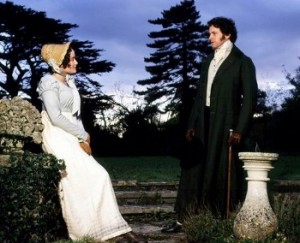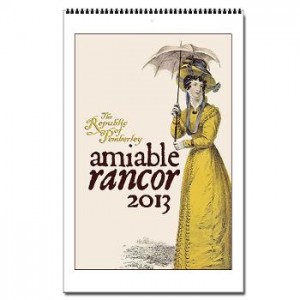Last night I got to do something very fun–do a presentation for a Girl Scout troupe on extraordinary women in history, complete with costumes and dress-up time! They had been doing a program on stereotypes that can hurt girls/women and constrain them in life, and I was asked to talk about how women in history were able to break those stereotypes. I talked about Elizabeth I, Marie Antoinette, Jane Austen, and Queen Victoria, and also the ways ordinary people lived their own lives despite some strict expectations. I hoped that this would tell them that, hey it used to be REALLY hard to be a girl, and we can’t take our freedoms for granted.
I’m not entirely sure the message got across, but the clothes sure did. 🙂 I took some of my own costumes with me and let them try them on, so they could see how constrained girls were by their everyday clothes. I asked them to imagine doing all the things they do (playing soccer, riding horses, doing chores, school and lessons) while wearing corsets, petticoats, long skirts, and bonnets. But mostly they wanted to twirl around and dance in flouncy skirts!
It was a lot of fun, and reminded me of when I was 9 years old and played dress-up. I had just started to be fascinated by history (thanks to reading stuff like “Anne of Green Gables,” “Little Women,” and, yes, Barbara Cartland novels! Her stories were pretty terrible, with all those teenaged stammering heroines and dark, glowering dukes, but I do credit her with feeding my history obsession…), and was reading everything I could get my hands on that dealt with women in history. Just like now, I loved imagining what it was like to live in a different time period, to think differently and see things in a very different way. I especially loved women who managed to be true to themselves and live in their own ways, despite all the pressure to do otherwise.
I hope those girls took some of that away from the talk as well, but I think mostly they’re just astonished women used to ride sidesaddle in dresses all the time….
What were some of your favorite books as a child? Who were some of your childhood heroines??








